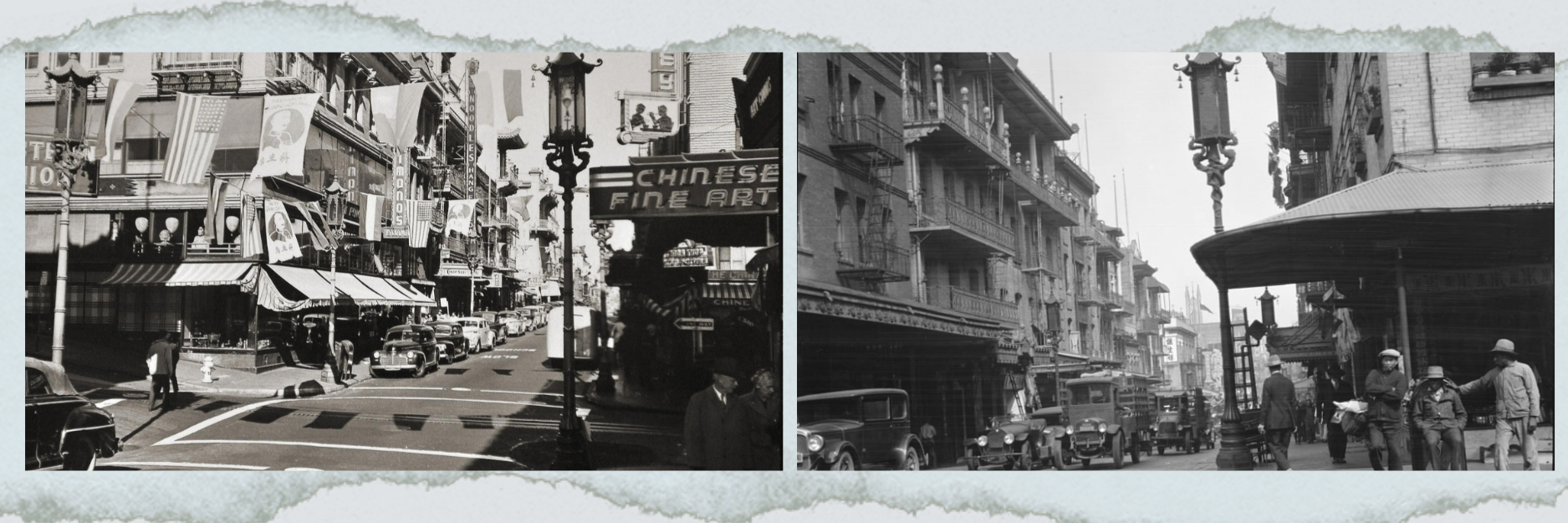James Poy Wong 黃培正

"It is a desolate scene: the wind blows at the women’s dresses; scraps of newspaper are rolling around like loose leaves; the straightly standing electric poles look like bare, withered sycamore trees. I think of late autumn in the metropolitan; I think of autumn in spring."
"A Year Ago" - 1946
一年前
一年前这一天,宇宙的舞台上,一员主角突然倒了下来,演出一刹那间的人生最大悲剧。 或者这样的收场,是观众意料中的事情,可是深望着不会发生而偏发生的重大打击,使全场的观众几乎个个都站起身来。 台上台下,除了台上西边一角露出点惨淡的光明外,其余都溶在黑暗的大气中,现在台下比黑暗还黑暗。 台上西边露出的光明,反而渐渐散播起来。 乐队向观众奏了整整一个月的低沉音乐。
这一天,太阳早已从西边的窗走了进来,用它最温柔的巨手,抚着我的办公台。 人们照常忙着工作,一切都表现得极端和平。 联军迫近柏林的消息,已没有先前那般兴奋,人人都觉得是必然的事情了。 每人的心或许都有点欢喜,当然主要的不是为了战事胜利这一面,却是胜利将把她的爱人亲人带回来。
“战争完了!” 最爱讲笑的旦杜氏走进室内来,大声地说出这句话。 可是他没有平日那幅笑容,声音也不像是喜悦的。 整个办公室中的五六十人,渐渐地向他趋近,有些缓缓的抱着观望态度,有些以迅速的脚步走过。 旦杜把手中新出版的晚报张开,一行特别大号的字,像魔鬼的牙般出现在每一双等候的眼前,上面刻着: “罗斯福死了。”
一刻,没有人发出声音,实在没有人想说话。 终于有人说: “人到底有一天是要死的。” 跟着这句话,众人散回到自己的座上。 尽力想继续工作,可是失败了。 抬起头来,就触到无数能言的眼睛,是为了谁底悲哀,使我们的心神如此不安宁?
办公室分开为好几组人,都低声地谈话。 罗斯福的名字不时的隐隐可闻。 我知道人人都不能集中精神来工作,而且接近放工的时间。 我斜望过去,前面那位五十左右的妇人,正痴望着那一无所有的空间,有所思地皱着前额,线纹更显得深刻点。 我记得当罗斯福与杜威竞选为总统时,曾和她打赌,到底我胜了。 但是她当时庄严的话我总不能忘记: “让那位老人安舒地生活一刻吧。 你们想要他的生命吗?”
出得船厂来,各处传出悲哀的声音,间有尖酸的报告。 “他死了!” 充满人们底心,人们自我的理智与感情充满了空间。 太阳躲进了西天的云里。 夹在两所大夏间的我,有着一种异样的感觉,不是死了亲人的悲哀,不是别了朋友的孤寂,却像被搁在树枝上的落叶,要下也下不得来。
风吹着妇女的衣裙,显得萧条,街中报纸的碎片在滚转,像无依的落叶, 笔竖的电线杆像枯秃了的梧桐。 我想到都市的深秋,我想到春天里的秋天。
那副未上年纪而老了的和善面庞,那友谊的声音,那微笑,那曾触过我们底心门的轮凳,将永远存在我们的记忆中。 我们向子孙述说当年的事时,“罗斯福” 的名字就溜到我们的唇边,不免又来一番感叹。 可是后人所知道的,只是 “罗斯福” 这个名字,或一点附着的光荣,可是他的努力或许永远给人们留在脑里了。 我这样想。
A Year Ago
On this day a year ago a leading actor suddenly fell on a world stage and instantly displayed the greatest tragedy of life. Perhaps this ending was expected by the audience, but the severe shock that we had so strongly hoped would not occur had happened, impelling nearly the entire audience to stand up. On and off the stage, other than the west corner of the stage that still emitted some dismally dim light, the rest was fused into a dark atmosphere. Now, off stage it was darker than darkness. Contrarily, the light from the west corner of the stage gradually spread out. For a whole subsequent month the orchestra played solemn music to the audience.
This day the sun has already entered through the westside window and brushed my office desk with its tender, large hand. People as usual are busy working, and everything appears to be exceedingly peaceful. The news about the Allied army approaching Berlin is no longer as exciting as before since everybody feels that is an inevitable event. Perhaps emotionally everyone feels somewhat happy; certainly it is not due to the victory of war, but that the victory will bring back one’s loved ones and kin.
Dandy, the one most fond of telling jokes, enters the room and shouts out, “The war is over!” Yet he doesn’t appear with that usual smiling face, and his voice doesn’t sound cheerful. All fifty to sixty people in the office gradually move towards him. Some move slowly with a wait-and-see attitude, and some come over with rapid footsteps. Dandy spreads out the newly published newspaper in his hands. Like the teeth of the devil an especially large headline appears in front of everyone’s eyes. The headline reads: “Roosevelt is dead!”
For a moment, nobody makes a sound. Really, nobody wants to speak. Finally someone says, “Afterall, everyone dies eventually.” Following this sentence people return to their seats and try hard to continue working, but they all fail. When you raise your head you would encounter countless eyes capable of speech. For whose sorrow have our hearts and minds become so disturbed?
Quite a few groups are formed in the office. They are talking softly but you can still faintly hear the name Roosevelt once in a while. I know people cannot concentrate on work, and moreso, it is close to the end of work time. I look over and see a lady in her 50s dull-wittedly looking into the empty space. Seemingly pondering, she knits her brows and her wrinkles appear to have deepened. I remember when Roosevelt and Truman were running for president, I had betted with her and I won. I cannot forget, however, the solemn meaning in her words at the time: “Let that old man live in comfort for a while. Do you all want to rob his life?”
I come out of the shipyard and hear pessimistic voices everywhere, amidst bitter reports once in a while. People’s hearts are overwhelmed with the headline of “He is dead!,” and their intellect and emotions permeate into the atmosphere. The sun hides into the western clouds. Being squeezed between two large buildings, I sense a strange feeling that is not a sense of sorrow from the death of a loved one, nor a lonely feeling from the departure of a friend. It is like a fallen leaf being stuck on a branch and could not come down.
It is a desolate scene: the wind blows at the women’s dresses; scraps of newspaper are rolling around like loose leaves; the straightly standing electric poles look like bare, withered sycamore trees. I think of late autumn in the metropolitan; I think of autumn in spring.
The kind face of that man looking older than his age, his friendly voice, his smile, his wheelchair that had touched our hearts, will forever be preserved in our memories. When we tell our children and grandchildren the event of that particular past year, the name Roosevelt will roll out from our lips, and we can’t help but to sigh again. However, late comers know only the name of Roosevelt that perhaps entails a little glory, but his effort perchance would forever stay in people’s minds! That is how I think.